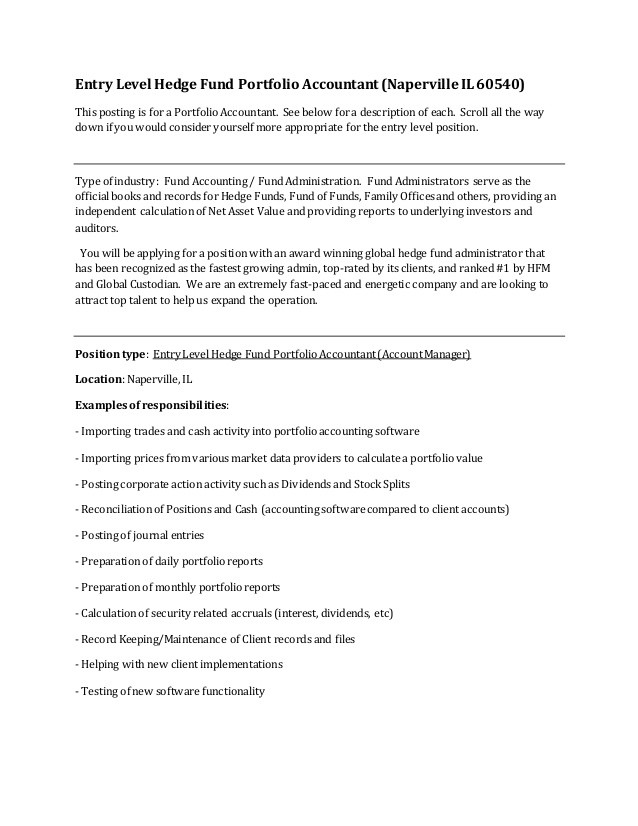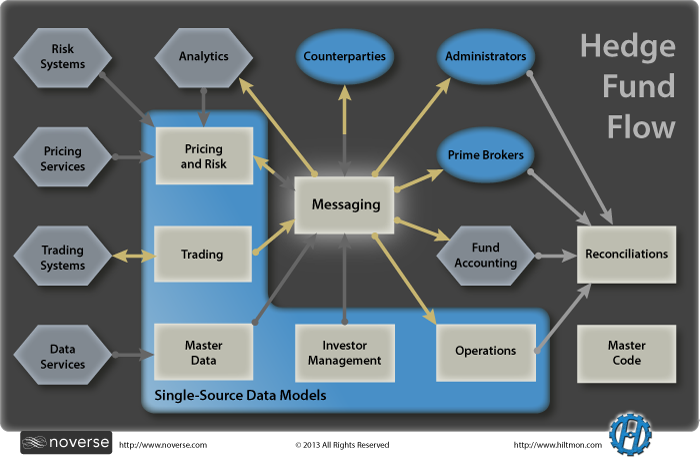Hedge Fund Accountant
Post on: 10 Июль, 2015 No Comment

Hedge fund accountants provide accounting services and performance analysis to hedge funds or mutual funds. In addition to preparing financial statements, maintaining general ledgers, calculating net asset value, and other accounting and recordkeeping activities, hedge fund accountants work closely with portfolio managers to develop specific investment strategies and improve various operations of the hedge fund. They also trade products and securities dealing with offshore hedge funds, handle the payments of hedge fund fees and expenses, and provide reports for fund managers and investors.
Requirements: According to the Robert Half Finance & Accounting 2013 Salary Guide. hedge fund accountants with one to three years of experience made an average salary of $53,000, while those with three to five years of experience made an average of $65,875 in 2012. Hedge fund accountants at the management level made an average of $93,625. Generally speaking, accountants and auditors earned the highest salaries working in New York, New Jersey, Massachusetts, District of Columbia, and Maryland, according to 2011 data from the U.S. Bureau of Labor Statistics. Median Salary: $53,000-$93,625 According to the Robert Half Finance & Accounting 2013 Salary Guide. hedge fund accountants who have one to three years of experience made an average salary of $53,000, while those with three to five years of experience made an average of $65,875 in 2012. Hedge fund accountants at the management level made an average of $93,625. Generally speaking, accountants and auditors earned the highest salaries working in District of Columbia, New York, New Jersey, Maryland, and California in 2012, according to the Bureau of Labor Statistics (BLS). Job Outlook:
Projected to grow 16% between 2010 and 2020, according to the BLS .
The large pool of companies and organizations in need of qualified accountants remains diversified. While there are many brands of specialty accounting skills, hedge fund specialists may find favor in the financial world over the next seven years, as new laws and restrictions may affect the viability of old-fashioned methods of banking and investing, calling on hedge fund experts to decipher the changing terms of this field. Also, more individuals and organizations may simply require professional accounting expertise to maximize their investment opportunities in hedge funds and/or mutual funds. Nearly a quarter of all auditors and accountants are currently working in accounting, tax preparation, bookkeeping, and payroll services. However, as is the case with the financial labor force in general, the top jobs in this competitive industry are more accessible to those with advanced education, experience, and vocational qualifications.
Continuing Education:

Continuing education for hedge fund accountants can provide professional skills to a candidate with an advanced degree. While accountants typically obtain their certified public accountant (CPA) certification to start practicing professionally, hedge fund accountants may take more specialized courses to maintain the continuing education requirements for this credential. The certified hedge fund professional (CHP) designation, for example, includes course work in hedge fund basics, investment strategies, analytics, due diligence, trends, and terminology. Dealing with high-volume finance accounts can be a delicate matter, so it is especially important for hedge fund accountants to be able to prove standardized qualifications in-line with industry standards. Competition is high even in specialty areas of finance and business, and top candidates may be able to set themselves apart by taking advantage of additional educational opportunities.
Post navigation
Previous Profile: Government Accountant














